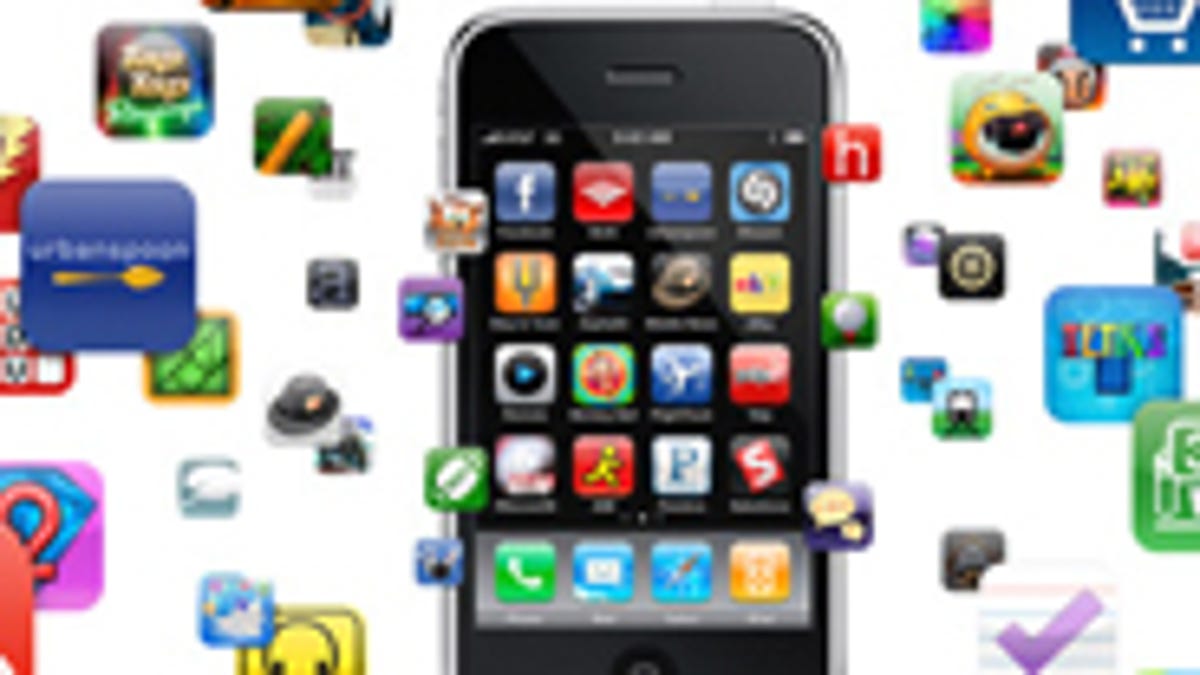Mobile companies chasing Apple's App Store
Apple iPhone users have downloaded more than 1.5 billion applications, and competitors are hoping to replicate the success. But will they hit app gold, too?

Apple's popular App Store has proven that selling mobile applications for smartphones is a hot business, but can all these copycat application stores expect to find the same success as the App Store?
Companies, such as Nokia, Google, LG Electronics, Research In Motion and Microsoft are hoping they can. Since the Apple App Store came on the scene a year ago, these companies have each announced plans for their own application stores.
LG Electronics, the third largest mobile handset maker in the world, is the latest to announce its store. On Tuesday, the South Korean device maker announced it has launched its own application storefront for its phones. The market place, which is initially only available in Asia, has 1,400 applications. The company said it plans to boost that number to 2,000 when it allows access in Europe and South America later this year.
LG hasn't yet set a date for opening its store in the U.S. But there are plenty of other companies launching application stores here. Research In Motion launched its BlackBerry App World store in March. The store only has about 2,000 applications. The company is currently developing a social networking siteto help boost adoption of its applications.
Other device makers, such as Palm, are reaching out to the developer community to create applications for its devices. But so far the new Palm Pre, which uses a sophisticated operating system developed specifically for the device called WebOS, only has a handful of applications. Still, consumers have been downloading them in droves.
Google's Android Market has also launched. Google professes it has a long term advantage over the iPhone because it's developer community is more open. And while the store is still young and relatively small today, it will likely have a large following among developers.
Earlier this year, Microsoft announced its Windows Marketplace for Mobile. And on Tuesday, the company said that the company would be accepting submissions for its application store starting July 27. The company also said that it will support Windows Mobile 6.0 and 6.1 by the end of 2009. The Windows Marketplace for Mobile is expected to launch in the fall.
Even Verizon Wireless is talking about developing an app store for its smartphones. Currently, Verizon offers applications using its VCast service and the BREW platform for its feature-phones. But now the wireless operator is talking about launching an application store just for smartphones. A Verizon Wireless executive recently told the blog GigaOm in an interview that the company is developing a marketplace that will aggregate applications from all the other storefronts from four different developer communities: Windows Mobile, Palm, Android, and BlackBerry.
And there are still other application stores in the works. Nokia has launched its own application store using its Ovi platform. And the Symbian Foundation is also working on a developer program to get more applications on the market for consumers with smartphones running the Symbian operating system.
All of these companies are hoping to tap into the success that has been demonstrated by Apple's App Store. A year after it launched, Apple claims the App Store now has over 65,000 applications and that users have downloaded more than 1.5 billion apps. The software developer community has also exploded with over 100,000 developers creating applications for the iPhone.
With statistics like this, it's easy to see why Steve Jobs, chairman and CEO of Apple, is not worried about competition from others developing their own application stores.
"With 1.5 billion apps downloaded, it is going to be very hard for others to catch up," he said in a statement.
Indeed it will be hard to catch Apple now. But it's easy to see why all these players want a piece of the action. Apple has proven that applications are a powerful differentiator for devices. In fact, analysts expect Apple to post better than expected results for its iPhone sales in the quarter that ended in June.
Piper Jaffray analyst Gene Munster said in a research note Tuesday that he expects that Apple sold 5 million iPhones in the June quarter. The Wall Street consensus is around 4 million.
The App Store is seen as one of the major reasons why the iPhone has been so successful. But can other application storefronts replicate the kind of success that Apple has experienced?
It will be tough. While Apple has made it easy to download and pay for applications, and the company has made it attractive for developers to develop for the iPhone, the real success of the App Store is likely attributed to the fact that it operates through Apples e-commerce service, iTunes.
Virtual stores have always existed for phones. But because so many people were already using iTunes and were already familiar with the interface, it made it that much easier for people to buy mobile applications using the store. Not to mention the fact that these customers also already had a billing relationship with Apple, which has also made it easy for developers to monetize their applications.
But even if all these other companies can't catch Apple, the fact that they are developing these storefronts and encouraging application development should drive new services and interesting applications for consumers.

